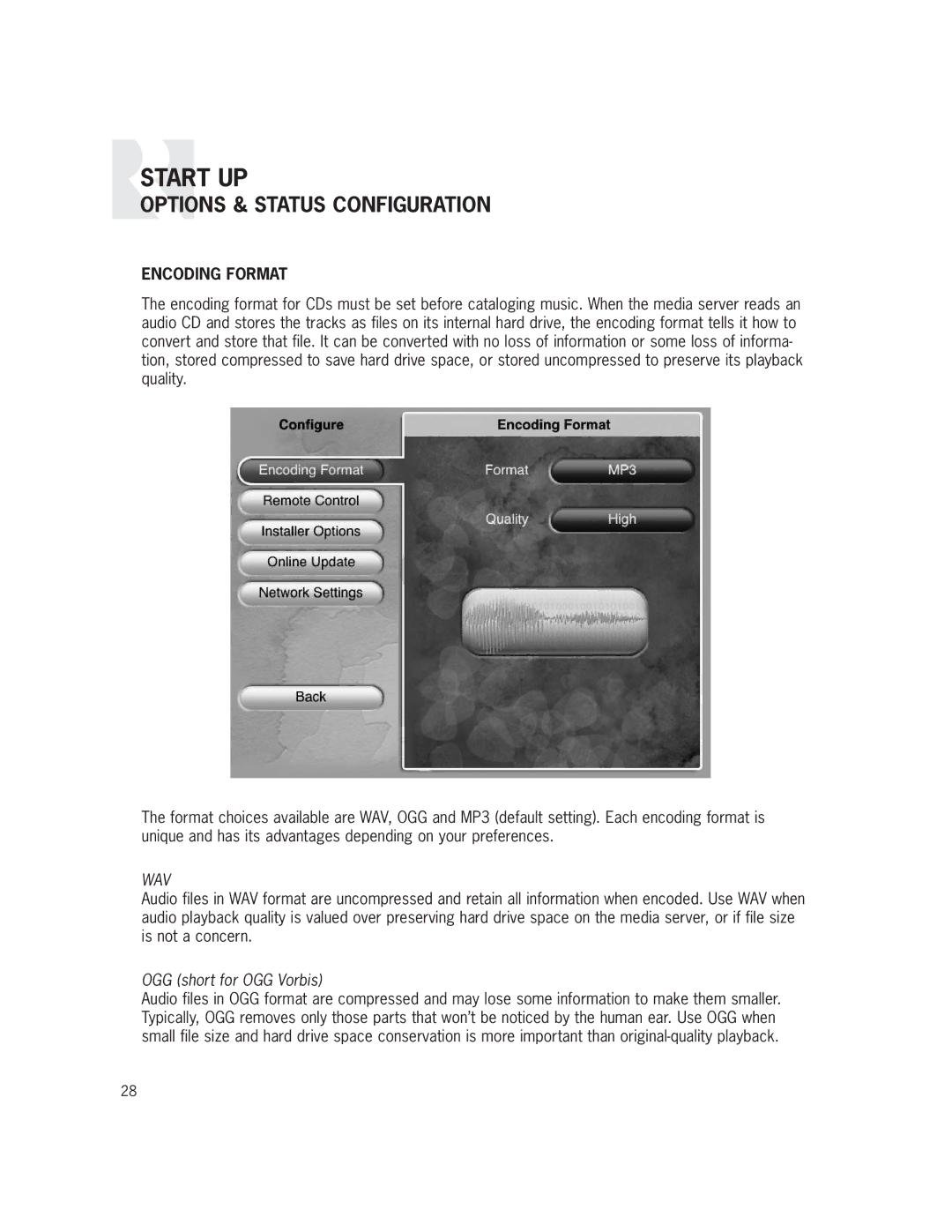
START UP
OPTIONS & STATUS CONFIGURATION
ENCODING FORMAT
The encoding format for CDs must be set before cataloging music. When the media server reads an audio CD and stores the tracks as files on its internal hard drive, the encoding format tells it how to convert and store that file. It can be converted with no loss of information or some loss of informa- tion, stored compressed to save hard drive space, or stored uncompressed to preserve its playback quality.
The format choices available are WAV, OGG and MP3 (default setting). Each encoding format is unique and has its advantages depending on your preferences.
WAV
Audio files in WAV format are uncompressed and retain all information when encoded. Use WAV when audio playback quality is valued over preserving hard drive space on the media server, or if file size is not a concern.
OGG (short for OGG Vorbis)
Audio files in OGG format are compressed and may lose some information to make them smaller. Typically, OGG removes only those parts that won’t be noticed by the human ear. Use OGG when small file size and hard drive space conservation is more important than
28
